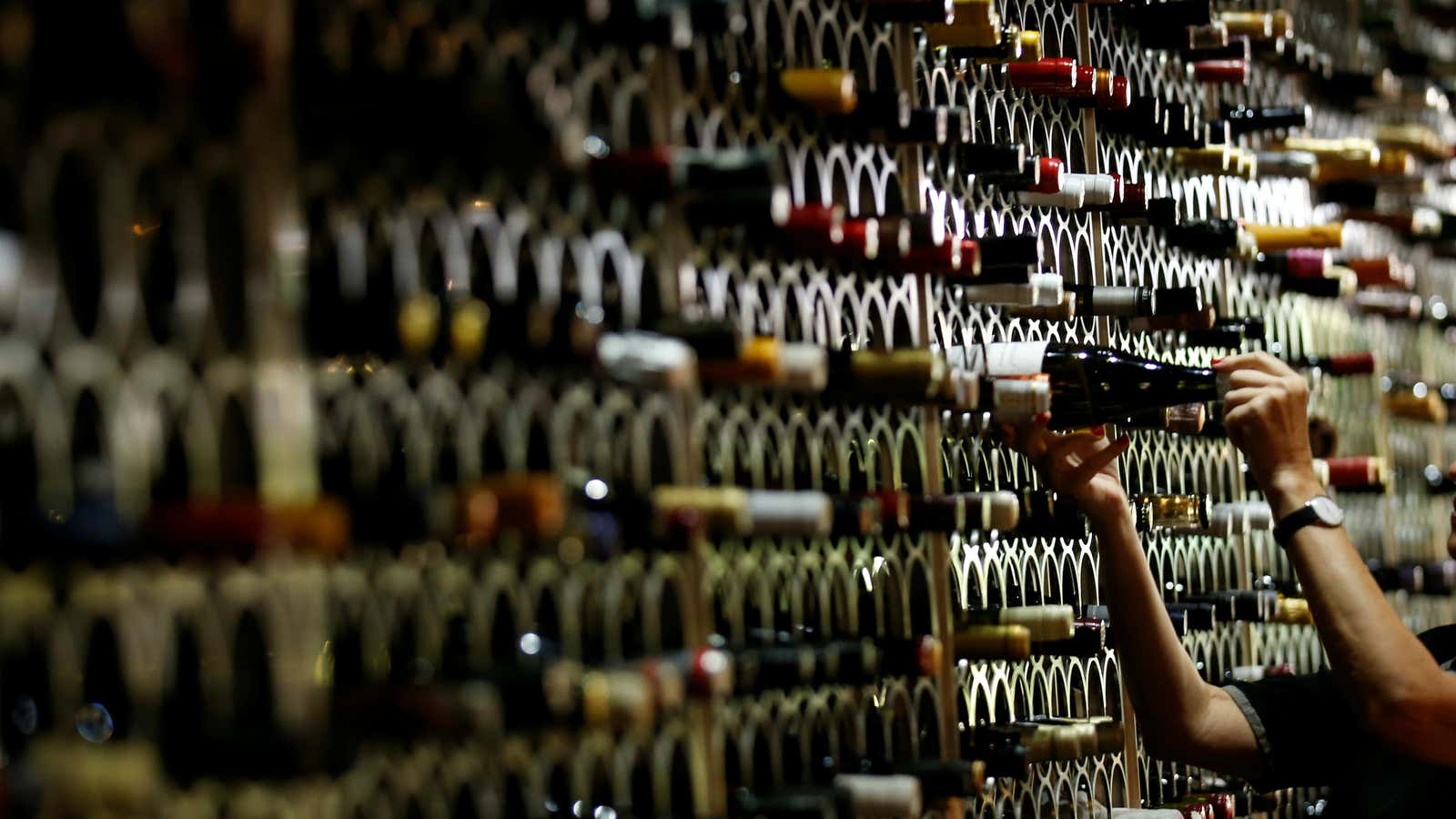Think about the last glass of wine you ordered in a restaurant—a complex Burgundy, for instance, or a glass of celebratory Prosecco. Now, consider the people who got it to you.
There are the obvious ones—the server, the restaurant owner, the importer, and the distributor. But there are umpteen others who may not immediately spring to mind—the (many) accountants who paid the (many) bills; the person who keyed it in or out of their inventory spreadsheet; even the air conditioning repairperson who checked up on the dodgy unit in the storage container.
All these people, and many others, could be hurt by the 100% tariffs currently under consideration for European wines by the Office of the US Trade Representative. “This is not just about luxury goods,” Jenny Lefcourt, the co-founder of natural wine importer Jenny & François Selections in New York City, told Quartz. “This is about warehouse jobs, delivery jobs, all kinds of jobs in every single state.”
The reason for the tariffs has absolutely nothing to do with drinks—and everything to do with plane manufacturers. In September, the World Trade Organization found that both Airbus and Boeing had received billions of dollars in illegal government subsidies over the past 15 years, including cheap loans and state tax credits. While at friendlier points in political history, US and the EU might have considered hashing out a settlement or letting it slide, in this case the US government moved quickly to begin full-blown, tariff-based retaliation. Later this year, the EU will learn the value of the US goods it can target in turn.
The tariffs, which will be decided next week, are designed to hurt the European economy by targeting the lucrative wine industry in France, Italy, Spain, and other countries. But US distributors say producers and other intended targets are well-placed to weather the storm—unlike those affected on this side of the Atlantic.
🎧 For more intel on the beverage industry, listen to the Quartz Obsession podcast episode on Japanese whisky. Or subscribe via: Apple Podcasts | Spotify | Google | Stitcher.
“There’s such demand for European wine in Asia, in China, that their wine would be absorbed by other markets,” says Lefcourt. Martha Aguilar, the co-owner of natural wine distributor PM Wines, in Taos, New Mexico, anticipated European wines being sent to China, Russia, and Japan instead. “With the wines that we’re working with—the market in all three of those countries is just booming beyond belief,” she said.
Less severe tariffs have been in place on European wines since October. Despite an already hefty 25% duty, wine importers and distributors managed to bridge the gap without too much of a dent to existing relationships or sales, Aguilar says, with importers pulling back their margins and striking deals with European winemakers. “It was unbelievably taken in stride—I was really impressed with how the importers dealt with things.” But the proposed tariffs are too high to make further adjustments feasible, and would likely slash profits.
Sure, US wines will still be there for the drinking. But even with the possibility of a boost in local sales, winemakers in states such as California aren’t thrilled either. They fear retaliatory tariffs from the EU, as Quartz’s Chase Purdy writes, possibly sparking a bottle-based trade war. Meanwhile, smaller US winemakers such as those represented by Aguilar simply don’t have enough wine to fill the supply, producing as few as 100 cases a year. Already, industry insiders are warning that distributors, retailers, and restaurants may go under, and if they’re right, wine producers could be left without representation or customers.
These tariffs come at a time when Americans are drinking more wine than ever before. Though beer remains the country’s favorite drink, wine sales have steadily risen since the 1990s. The roughly 34% of US drinkers who prefer wine to beer or spirits will now have to look elsewhere—or get accustomed to paying twice as much.
But nothing is set in stone—for now. The Office of the US Trade Representative is required to take comments from the public on the proposed measure until January 13, when a final decision will be made. While those in the wine industry may be keeping their fingers crossed, they’re as uncertain of their fate as ever. “There’s no knowing with this government,” says Lefcourt.
